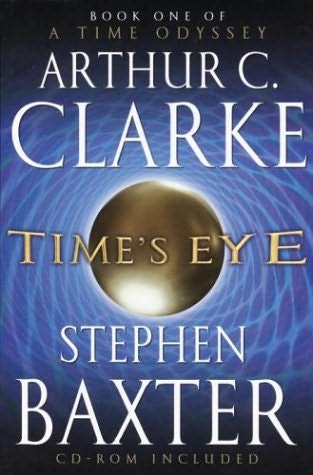
Author(s) : Arthur C Clarke
Stephen Baxter
Genre : Science fiction
Pages : 392
Rating : 8/10
Another non-shitty addition to this site...but again, variety is the spice of life.
As SF buffs would know (don’t worry, if you don’t know what SF means then you are not one of them) Arthur C Clarke is about as good as it gets (or got, he died a few days back.), and in this book, he does full justice to his reputation. Time’s eye is part one of the A time Odyssey series by Clarke and Baxter and after reading this, I am sure the rest of the series is absolutely fabulous.
The story revolves around Bisesa Dutt, an English soldier of Indian origin, and is set in 2037. On day, while in the middle of a peacekeeping mission in Afghanistan, her chopper is shot by an RPG and she crashes to the ground, only to find herself in the 19th century. What follows is an exciting encounter of two of humanities greatest powers mixed together by some god-like entity which has broken the barriers of time. In an empty and strange world made of slices of earth from different times, where human history stretching a million years is suddenly put into a blender and mixed in an unprecedented experiment, Bisesa struggles to understand the motives of the powers behind this.
The book is a stunning example of the authors’ brilliant and wild imagination. Every character and every incident is filled with vision and understanding of the human psyche. It is amazing how easily the author’s establish natural relationships between characters’ that differ in their origins by millennia. Although the events depicted in this book are fantastic and way beyond current science, the author’s do manage to keep an SF like perspective. Perhaps this should be expected, many of Clarke’s earlier books follow a similar pattern. One weakness of the book is that the climax seems a little too abrupt: perhaps it was deliberately written so to incite readers’ interest in the sequels. However, as an independent book, the climax is somewhat of a disappointment. However, this book is still a great read for any Science-Fiction enthusiast. For non-SF-buffs, if you can get over the fantastic nature of the beginning, the rest of the book can be read like a brilliant historical fiction piece. So I guess there’s something for everyone here...